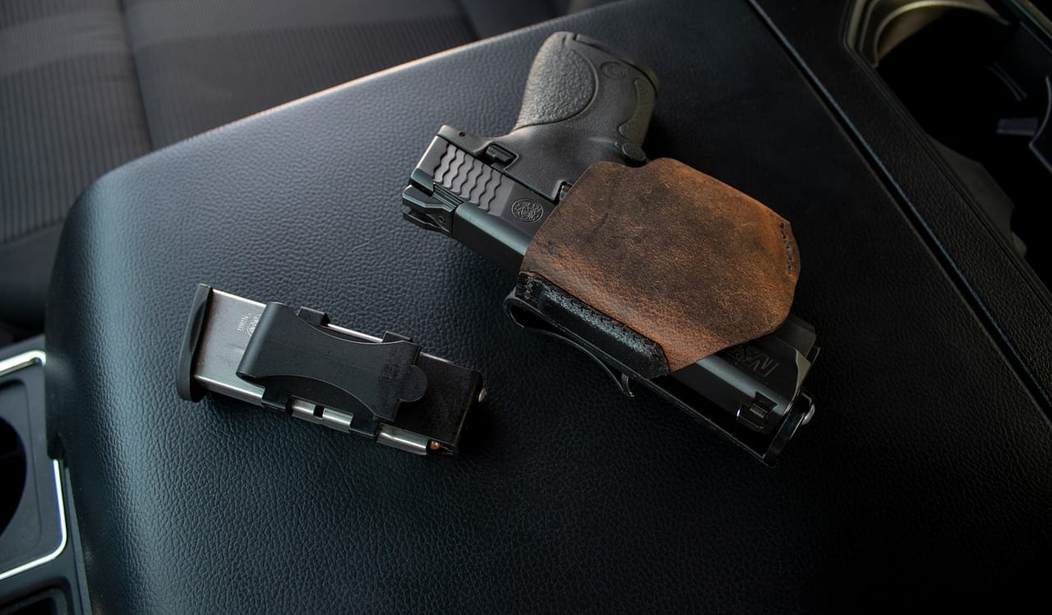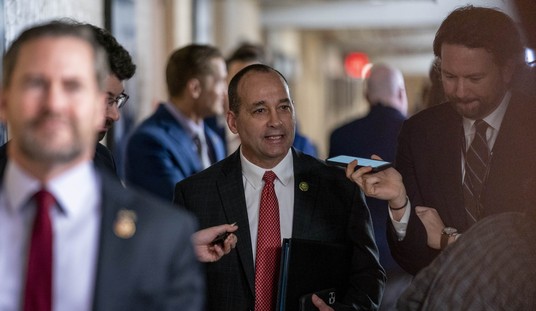The Eight Circuit Court of Appeals heard oral arguments today in a challenge to Minnesota's ban on concealed carry licenses for adults under the age of 21, and while you can't read too much into the questions by the three-judge panel, I think it's fair to say that the state's argument in support of the ban suffered from severe problems and was treated with a decent amount of skepticism from the panel.
Minnesota Solicitor General Liz Kramer defended the statute for the state, and based her argument largely on the idea that 18-to-20-year-olds have never been considered a part of "the people" or the political community who possess the right to keep and bear arms. Based on that decidedly flawed argument, Kramer asserted that the state should have been granted summary judgement and dismissed by the lower courts.
Almost as soon as she made that bold statement she was interrupted by one of the judges, who reminded her of the 26th Amendment that established the right to vote for adults 18 and older.
"The Supreme Court has said that amendments amend everything [that came] before it, several times," the judge pointed out before asking her what weight she would give that amendment.
Kramer's answer was completely nonsensical; arguing that the Bruen decision mandates that any post-1900 law is irrelevant when determining the constitutionality of any modern gun law. The Bruen test actually centers around 1791, and to a lesser degree 1868 (when the Fourteenth Amendment was ratified), but it says nothing at all about negating or giving no weight whatsoever to other constitutional amendments.
The judge declared that Kramer's answer "shocked" him, which could not have been the way Kramer was hoping to start her argument. It didn't get any better for her from there, with Judge David Stras jumping in to ask Kramer how the Militia Act, which "clearly required" 18-to-20-year-olds to "hold guns", could not involve a right for them to keep and bear arms.
Kramer contended that the Militia Act is not enough to contradict what she described as the "overwhelming weight of history", which she contends shows that young adults were never considered to be a part of "the people". At that point, barely five minutes into her presentation, Kramer seemed to know this argument wasn't playing well, so she attempted to shift to the state's secondary argument; even if 18, 19, and 20-year-olds are part of "the people," the historical record indicates that they weren't allowed to bear arms in defense of themselves in the 18th and 19th century.
The judges weren't quite ready to let that first argument rest, however. The same judge who brought up the Militia Act then quizzed Kramer about what the state's position would mean for young adults and other constitutionally-protected rights. Stras wondered if 19-year-olds have a Fourth Amendment right against unlawful search and seizure, for example, or can cops pull them over and search them without cause simply because of their age?
Kramer's response was "of course not," but she failed to articulate why that would be the case, arguing instead that Bruen requires each right enumerated in the Constitution be treated differently; something the Supreme Court would surely disagree with, and a position that the Eighth Circuit panel seemed reluctant to accept.
The next question directed to Kramer was whether or not the state could point to any particular statute from around the time the Second Amendment was ratified that specifically prohibited 18-to-20-year-olds from possessing a firearm.
"We don't have any statewide legislative enactments from that period. I absolutely concede that," Kramer admitted, pointing instead to a handful of local ordinances and college rules while arguing that the "common law" was clear that those under the age of 21 couldn't possess a gun.
When it came time for the plaintiffs to face the court, attorney Pete Patterson argued that the historical record shows 18-to-20-year-olds, like "all other Americans" were indeed a part of the people whose right to keep and bear arms is protected by the Second Amendment. Far from any widespread tradition of disarming young adults, Patterson noted that there are no laws or statutes from the time of the Founding that would have barred young adults from exercising their Second Amendment rights. Even when considering Reconstruction-era laws, Patterson pointed out that there were only three states that limited gun possession to over-21s. By 1900, a time period that the Supreme Court has suggested is outside the limits of historical inquiry, 17 out of 45 states had some form or fashion of limitations on the Second Amendment rights of young adults; not quite an outlier figure but still less than half of the country.
Judge Stras asked Patterson about the lower limits of any age-based restrictions; if an 18-year-old can exercise their Second Amendment rights fully, what about ten-year-olds? Patterson deftly addressed that line of inquiry by suggesting that the militia statutes are "very pertinent evidence". Those statutes didn't allow for ten-year-olds to join the militia, but they did require 18-year-olds to do so, which suggests that 18 is the age when our Second Amendment rights are fully vested.
The historical record wasn't the only topic of discussion during today's oral arguments, even if it was the primary concern for the judges on the panel. Because this is a case dealing with the rights of those under the age of 21, at least one of the original plaintiffs has aged out and is now able to acquire a concealed carry license in Minnesota. The state contends that makes the entire case moot, with Kramer arguing that the Eighth Circuit has never allowed for new plaintiffs to join the litigation.
The panel noted, on the other hand, other appellate courts have done exactly that, and questioned how exactly any lawsuits challenging age-based restrictions could be brought if the slow pace of the legal process allows the state to moot cases when the plaintiffs age out. Kramer's laughable assertion is that the plaintiffs in these cases should be as young as 15 years old, even though the entire crux of the Worth case deals with those between the ages of 18 and 20.
You can listen to the roughly 30-minute oral arguments for yourself here, but my sense is that today did not go well for the state in its quest to continue depriving young adults of their right to bear arms in self-defense. The district court has already concluded that Minnesota is violating the Second Amendment rights of 18-to-20-year-olds, and I heard nothing in Kramer's presentation or the judge's questions that make me think she was able to persuade the panel that the lower court made the wrong call. The judges seem to understand the issue at hand, as well as the history involved, and based on the oral arguments I would be surprised to see them reverse the lower court and uphold Minnesota's carry ban for adults under the age of 21.








